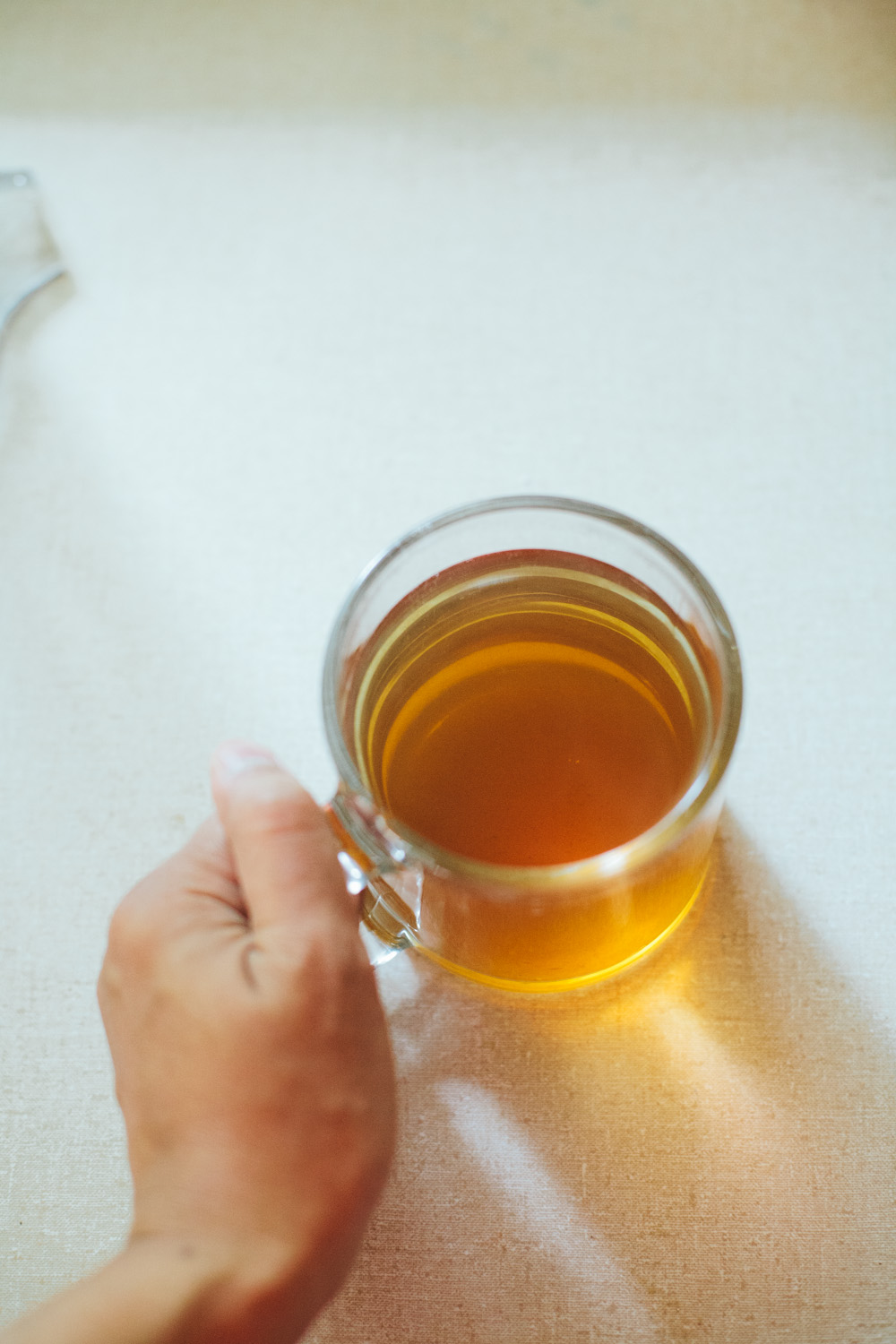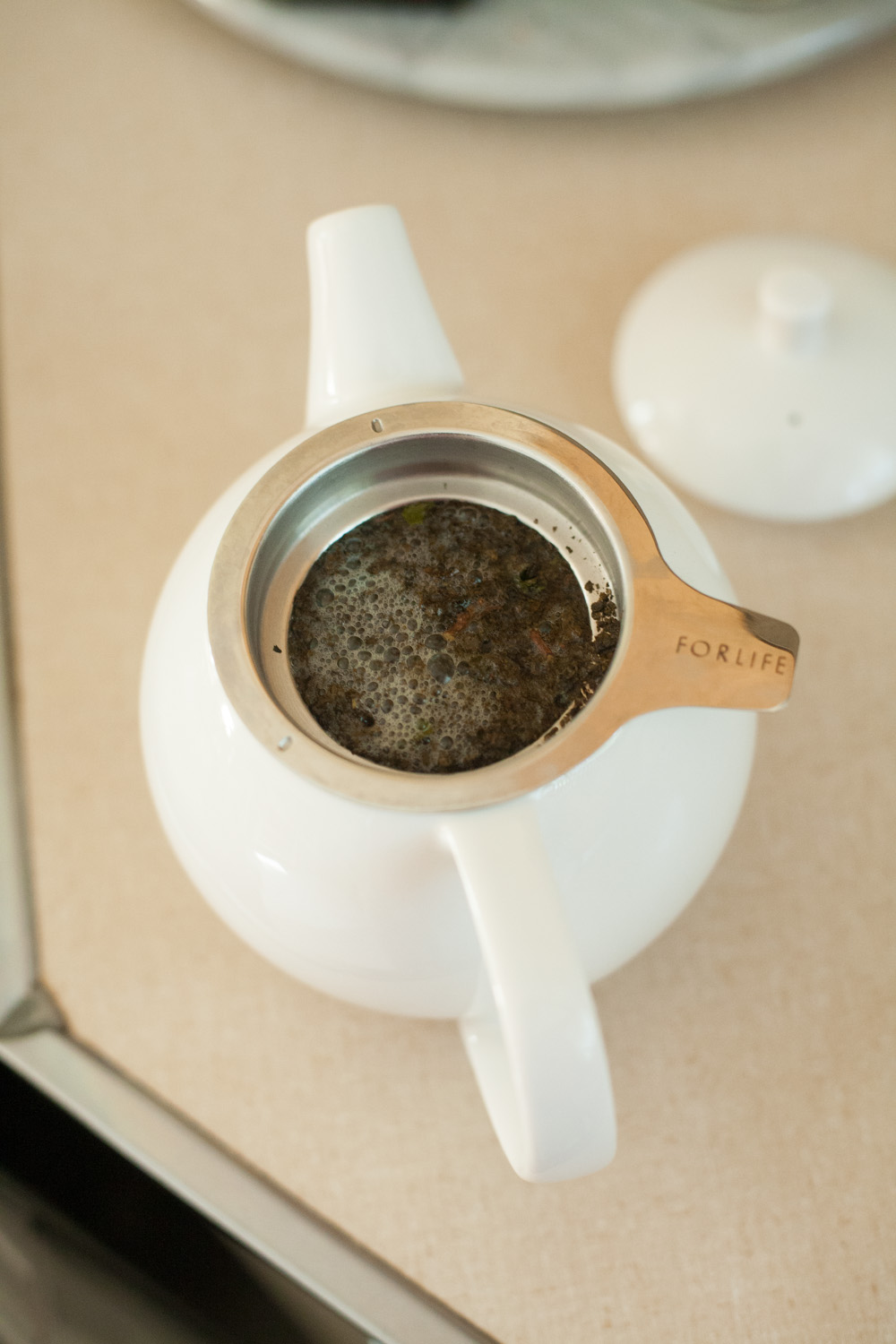When you’re body has been overtaxed, it needs nourishment. But what are the best foods to eat when you’re exhausted or depleted in some way? All kinds of products promise to speed up physical recovery. What works? Here’s a look at what GABA, or specifically GABA oolong tea, could offer you.

Marketed as a hangover relief product, GABA oolong tea is right up there with a host of foods said to be healing, nourishing and stabilizing after physical stress. Unlike some of the everyday hangover-helpers featured in this recent Taste of Home article I wrote, however, GABA is not exactly a household word. Eggs, oats, bananas–sure. But GABA? What is it? What does it offer? How would it help you when you’re tired, sick, run down or drained? Here’s what you’ll want to know.
What Is GABA?
GABA stands for the fancy term gamma-aminobutyric acid, which is “the main inhibitory neurotransmitter in the human cortex,” as described by researchers. In layman’s terms, it helps parts of the brain communicate with each other. Psychology Today says it’s kind of the “brakes of the brain,” i.e., what slows down frenzied activity. Because of how it may regulate and pace the brain, GABA is widely available as a supplement, and it has been studied for its effects on the nervous system and as a calming agent. According to specialty tea maker Zi Chun Teas*, it’s also potentially a hangover cure, at least when consumed as a tea beverage.

What Is GABA Oolong Tea?
Lots of teas are good for you. (Remember matcha?) Most people know this. According to a recent Instagram survey, 84% of more than 250 respondents are drinking some kind of tea at least once a week. Yet only 8% have ever heard of GABA oolong! What’s unique about GABA oolong is that it’s a kind of looseleaf tea that is high in GABA. Some varieties are fortified with GABA to boost their potential benefits; some are naturally high in GABA, like the one from Zi Chun. According to the company, its product has between 250 and 280 milligrams of GABA per 100 grams of tea. Its leaves are harvested in Taiwan.
What Are the Proven Benefits of Drinking GABA?
Search the Internet for information about GABA oolong tea, and you’ll find a lot of claims. Proponents say it calms them down, improves sleep, enhances mental alertness, reduces anxiety and yet is invigorating enough to be a “pick me up.” But what is actually backed by evidence? Here are some highlights:
- Stress reduction. One recent study, which looked at how fortified GABA oolong tea affected student stress levels, concluded that “even a very small amount of GABA-fortified oolong tea leads to a significant effect on acute stress levels.”
- Lowered blood pressure. One study of 59 patients with hypertension focused on fermented milk with GABA. For participants who drank it for 14 weeks, “significant reductions in blood pressures were recorded.” While this study did not involve tea specifically, it does demonstrate the potential power of the GABA found in GABA oolong.
- Benefits for autism. According to one small, double-blind, placebo-controlled study from earlier this year, GABA oolong tea may improve sensorimotor abilities and anxiety levels for children with autism.
The biggest controversy regarding GABA is whether or not products containing it can cross the blood-brain barrier. Numerous studies showed it couldn’t; later studies showed it could, but in small amounts. Regardless, the three benefits above prove clear benefits from GABA consumption; others are also possible.
So Is It Good for Hangovers?
According to Zi Chun Teas, one of the biggest culprits behind hangover or hangover-like symptoms (headaches, exhaustion, mental fog, etc.) is dehydration. Because GABA oolong tea is naturally hydrating as well as a source of key minerals, it can counteract those common effects. This, coupled with the acid’s naturally soothing and neutralizing impacts, may make it a good option for hangovers or any sort of physical depletion.
To learn more about GABA oolong from Zi Chun Teas, you can check out this product listing on Amazon as well as this article from the company’s site.
*Zi Chun sent me some GABA oolong tea to try, which fueled the topic of this post. I did not receive any other compensation. All opinions expressed are my own. Note that this post, like many on this site, contains Amazon affiliate links, through which I may earn small commissions on any products purchased.


